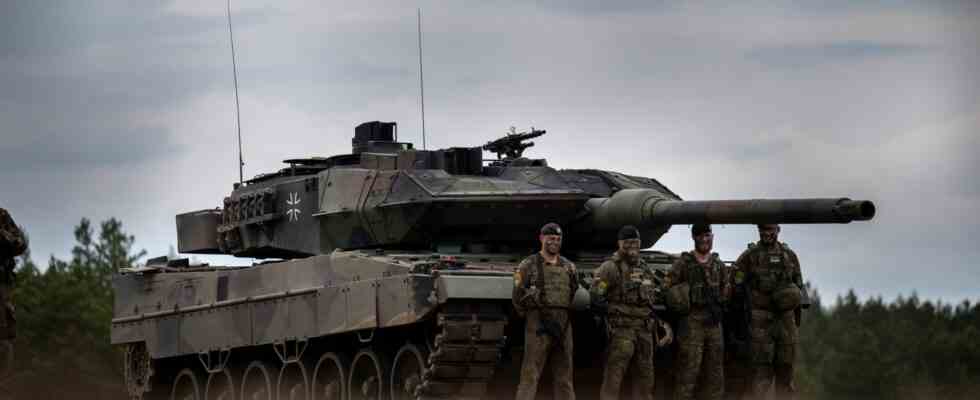Status: 09/24/2022 01:56 am
Chancellor Scholz is taking a cautious course when it comes to supplying main battle tanks to Ukraine. This is met with a lack of understanding among partners in Eastern and Central Europe. There are suggestions as to how this could be done.
Up in the air, fighter jets perform daring maneuvers. Tanks below are plowing through lawns for practice purposes. More than a hundred thousand people came to see it – at the so-called NATO Days in Ostrava in the east of the Czech Republic last weekend.
The Bundeswehr also gets to feel that there is hardly any fear of contact between people and weapons here: Parents heave their children onto the German tanks on display, young and old climb on and around in the vehicles, ask so many questions that the German soldiers with the Explain barely follow.
Remarkable: Side by side, the Germans have put up a weapon system for inspection here that Ukraine already has: the Panzerhaubitze 2000. And one that it hasn’t gotten so far: the much-discussed Leopard 2 main battle tank.
“They are fighting for their lives”
What Germany does and doesn’t do for Ukraine is a huge issue here in the Czech Republic, confirms Ondřej Benešik, chairman of the Europe Committee in the Czech Parliament. He says in an interview with that ARD Capital Studio also that Ukraine should be given everything it needs: “Offensively or defensively. Because in this situation all weapons are defensive weapons. They are fighting for their lives. And they are also fighting for us, not just for themselves.”
It is no secret that Germany has disappointed, not to say alienated, allies in Central and Eastern Europe: After the war began, Poland doubted Berlin’s reliability because it had difficulties with arms deliveries. Latvian Defense Minister Pabriks said in May that trust in Germany was “close to zero.”
Gentle handling of Russia
And German Foreign Minister Annalena Baerbock could only listen to her Ukrainian counterpart Dmytro Kuleba’s urgent calls for battle tanks during her visit to Kyiv two weeks ago, without being able to give a positive answer.
“Of course, a lot of porcelain has also been smashed, but that doesn’t apply to the last few months, but to the last few years,” Baerbock said recently, looking at Eastern Europe ZDF – and thus sought responsibility primarily from the predecessors of the current government.
She referred, among other things, to the Nord Strea 2 pipeline. Chancellor Angela Merkel and the Social Democrats stoically stuck to it even after the annexation of Crimea – against all warnings from Brussels, the Baltic States, Poland and the Czech Republic. In any case, people in Eastern Europe now feel confirmed in the years of warnings that dealing too softly with Russian President Vladimir Putin would be misleading.
Also criticism from the government
But even if he saw a change in policy in Berlin, the influential security expert Ondřej Benešik explains that even today, in his country, the Czech Republic, Germany is seen as being too reluctant to support Ukraine. “Yes, I agree. Germany, as the economically strongest country in Europe, should show more leadership,” says the Christian Democrat.
Chancellor Olaf Scholz once said that anyone who orders leadership gets leadership. Only with a view to Europe does he not keep his promise – this criticism can be heard even from the governing parties SPD, Greens and FDP.
Merge for deliveries?
Scholz’ SPD party friend Michael Roth took up an idea from the think tank “European Council on Foreign Relations” (ECFR) to change that: 13 European countries owned the Leopard 2 main battle tank: “Why don’t we join forces? Each country supplies one certain ingredient,” Roth suggested.
Proponents speak of a “triple win situation”: Ukraine would get the tanks it urgently needs, Germany would not go it alone and the signal would be sent to the European allies that Berlin is quite ready to demonstrate its energy. In any case, no resistance is to be expected in Central and Eastern Europe.
Germany, Eastern Europe and the battle tanks
Kai Küstner, ARD Berlin, 24.9.2022 1:56 a.m

